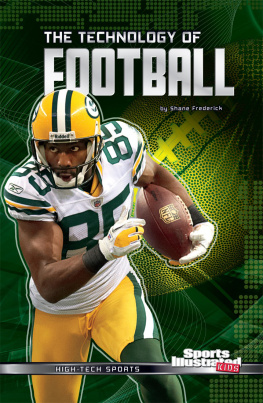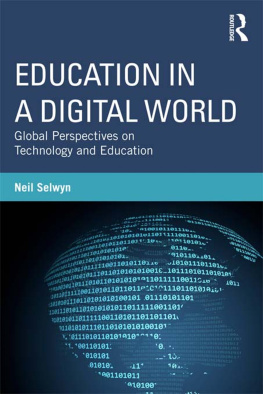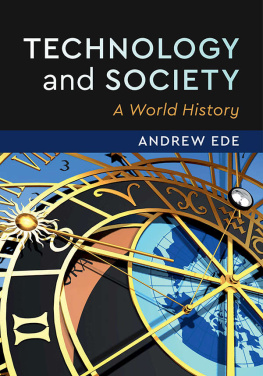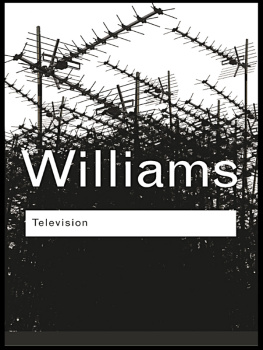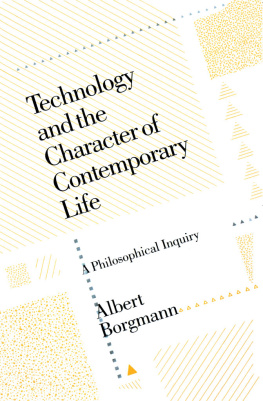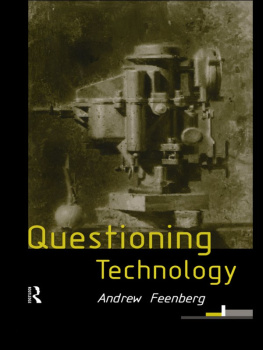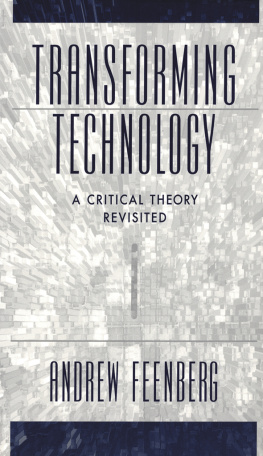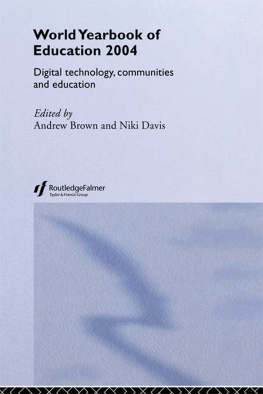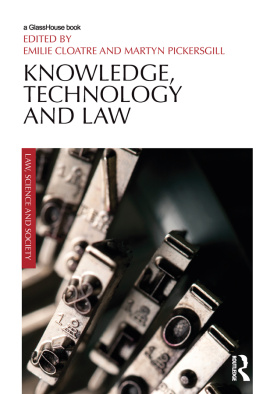Cover
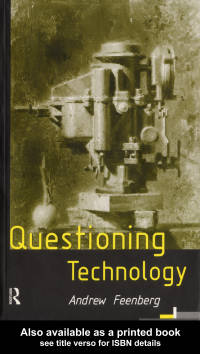
| title | : | Questioning Technology |
| author | : | Feenberg, Andrew. |
| publisher | : | Taylor & Francis Routledge |
| isbn10 | asin | : | 0415197554 |
| print isbn13 | : | 9780415197557 |
| ebook isbn13 | : | 9780203159354 |
| language | : | English |
| subject | Technology--Social aspects, Technology--Political aspects, Technology--Philosophy. |
| publication date | : | 1999 |
| lcc | : | HM221.F3843 1999eb |
| ddc | : | 306.4/6 |
| subject | : | Technology--Social aspects, Technology--Political aspects, Technology--Philosophy. |
Page i
Questioning Technology
Questioning Technology is a superb piece of workI see it as quite simply one of the best books in the field of philosophy of technology, as well as one which I think will be of most interest to students. Andrew Light, SUNY Binghampton
Andrew Feenbergs Questioning Technology is a cutting edge book which provocatively argues for subjecting technology to democratic debate and reconstruction. One of the most important books on technology in the present era.
Douglas Kellner, UCLA
In this extraordinary introduction to the study of the philosophy of technology, Andrew Feenberg argues that technological design is central to the social and political structure of modern societies. Environmentalism, information technology, and medical advances testify to technologys crucial importance.
In his lucid and engaging style, Feenberg shows that technology is the medium of daily life. Every major technical change reverberates at countless levels: economic, political, religious, and cultural. If we continue to see the social and technical domains as being separate, then we are essentially denying an integral part of our existence, and our place in a democratic society.
Questioning Technology convinces us that it is vital that we learn more about technology the better to live with it and to manage it.
Andrew Feenberg is Professor of Philosophy at San Diego State University. He is the author of Alternative Modernity, Critical Theory of Technology, Lukcs, Marx and the Sources of Critical Theory, and co-editor of Technology and the Politics of Knowledge.
Page ii
Page iii
Questioning Technology
ANDREW FEENBERG

London and New York
Page iv
First published 1999
by Routledge
11 New Fetter Lane, London EC4P 4EE
Simultaneously published in the USA and Canada
by Routledge
29 West 35th Street, New York, NY 10001
This edition published in the Taylor & Francis e-Library, 2001.
1999 Andrew Feenberg
All rights reserved. No part of this book may be reprinted or reproduced or utilized in any form or by any electronic, mechanical, or other means, now known or hereafter invented, including photocopying or recording, or in any information storage retrieval system, without permission in writing from the publishers.
British Library Cataloguing in Publication Data
A catalogue record for this book is available from the British Library
Library of Congress Cataloguing in Publication Data
Feenberg, Andrew.
Questioning Technology / Andrew Feenberg.
p. cm.
Includes bibliographical references and index.
1. TechnologySocial aspects. 2. TechnologyPolitical aspects. 3. TechnologyPhilosophy.
HM221.F3843 1999
306.4'6DC21 9837421
CIP
ISBN 0-203-02231-9 Master e-book ISBN
ISBN 0-203-15935-7 (OEB Format)
ISBN 0-415-19754-6 (hbk)
ISBN 0-415-19755-4 (pbk)
Page v
Contents
List of charts | vi |
Preface | vii |
1. Technology, Philosophy, Politics | |
Part I.THE POLITICIZING OF TECHNOLOGY | |
2. Technocracy and Rebellion: The May Events of 1968 | |
3. Environmentalism and the Politics of Technology | |
Part II.DEMOCRATIC RATIONALIZATION | |
4. The Limits of Technical Rationality | |
5. The Problem of Agency | |
6. Democratizing Technology | |
Part III.TECHNOLOGY AND MODERNITY | |
7. Critical Theories of Technology | |
8. Technology and Meaning | |
9. Impure Reason | |
References | |
Index | |
Page vi
List of Charts
CHART 1. | The Varieties of Theory | |
CHART 2. | How Artifacts Have Politics | |
CHART 3. | World Relations and Basic Attitudes | |
CHART 4. | Coordination Media | |
CHART 5. | Instrumentalization Theory | |
CHART 6. | Differentiation and Concretization | |
Page vii
Preface
For two centuries now, great democratic movements have swept the globe, equalizing classes, races, genders, peoples. As these movements expand the definition of humanity, they also extend the boundaries of the political to embrace more and more of social life. At first, law was taken from God and king and brought under human control. Then, Marx and the labor movement placed the economy on the political agenda. In this century, political management of the economy has become routine, and education and medicine have been added to the list of contestable issues. As a new century begins, democracy appears poised for a further advance. With the environmental movement in the lead, technology is now about to enter the expanding democratic circle.
This marks a fateful change in our understanding of technology, in its position on the conceptual maps of theory and critique. Formerly, the democratic movement gave its fullest confidence to the natural processes of technological development, and it was only conservative cultural critics who lamented the price of progress. The Ruskins and the Heideggers deplored the dehumanizing advance of the machine while democrats and socialists cheered on the engineers, heroic conquerors of nature. However, all agreed that technology was an autonomous force separate from society, a kind of second nature impinging on social life from the alien realm of reason in which science too finds its source. For good or ill, technologys
Next page

